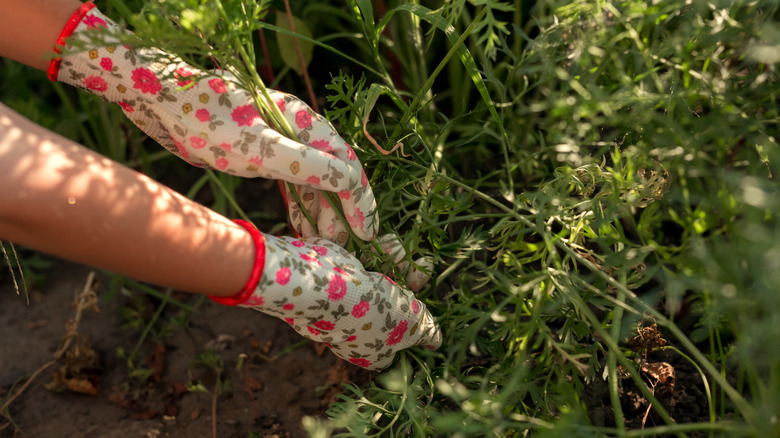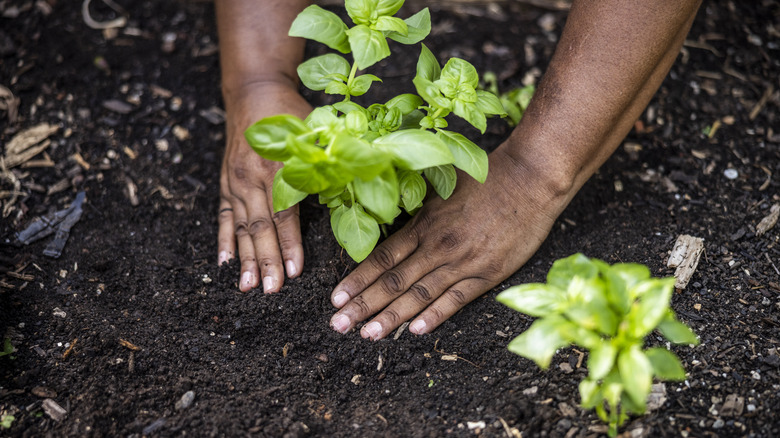The Gardening Mistake That Keeps Bringing Weeds Back To Your Yard
Weeds. These pesky plants are the eternal bane of every gardener. They steal precious space, needed sunlight, and important nutrients from your garden, and can also bring disease, killing off the plants you want to thrive. Worst of all, you can spend hours and hours in the yard trying to rid yourself of the invasive plants, yet they still somehow come back. Before you continue the break-backing work in a never-ending battle, let's learn about one big mistake you might be making. It may come as a big surprise, but all that soil turning you're doing to help your garden may just be the reason weeds keep coming back.
Turning soil is a popular method for soil preparation for flower and vegetable gardens, but if you're fighting a losing battle against weeds, it's a good idea to try and avoid it. This technique is typically done to break up dirt and allow for a better flow of oxygen and water for your plants as well as a way to clear overgrown weeds. However, turning soil can actually cause weeds to return to your garden. This happens because turning the soil will bring previously buried weeds to the surface, where they are now free to soak up the sun and water and start heartlessly choking out your other plants.
Consider a no-dig garden to keep dreaded weeds at bay
Healthy soil is an absolute necessity for a thriving garden. So if you can't turn soil to create a rich environment for plants, then what can you do? Easy! Consider a no-dig garden for the best of both worlds. This technique is successful in providing nutrients for your plants while still avoiding unwanted weeds. Instead of turning soil, no-dig gardens utilize a layering technique to smother weeds while still creating a healthy bed for your plants.
To create your own no-dig garden, cut down existing vegetation to the soil level. If you have any large rocks or debris in the area, remove those as well. Then, lay down overlapping cardboard boxes and wet them. After wetting, layer on material from your home composting (6 inches are recommended). Your compost will be the nutrient-rich soil needed for your plants. No-dig gardens are a great low-labor option that mimics the natural progress of plant life.
While this method has a plethora of positives, there are a few drawbacks to keep in mind. First, you will need a lot of high-quality compost for successful gardening. Second, if you live in a drier desert climate, the no-dig garden will likely not produce enough moisture for your plants. Though it's not a catch-all solution, the no-dig garden can be a great option for many.

